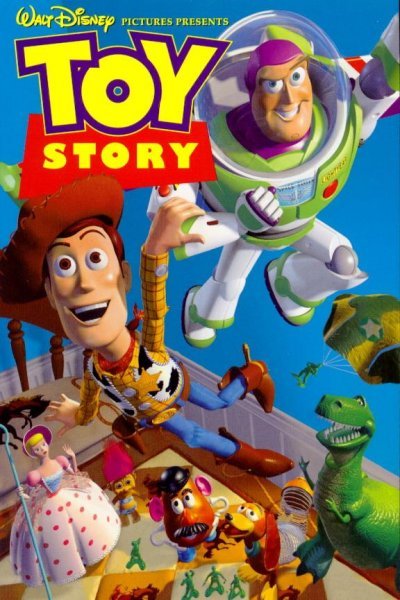 Thanks to Rick, whoever you are for your comment on the review of Inside Out, posted on August 17th. I responded to it in the comments page, but I think his simple remarks highlight some good discussion points that are worthy of wider consideration. Is the film industry important? Am I just over analyzing an innocent children's film?
Thanks to Rick, whoever you are for your comment on the review of Inside Out, posted on August 17th. I responded to it in the comments page, but I think his simple remarks highlight some good discussion points that are worthy of wider consideration. Is the film industry important? Am I just over analyzing an innocent children's film?
 Here is Rick's comment, he first pulls a quote out of my blogpost:
Here is Rick's comment, he first pulls a quote out of my blogpost:
' "No wonder Riley was struggling with life, she was living in miserable isolation! May the Lord be with your spirit." Just a thought, you might want to know that Riley is not real. It's just a movie mate, take it easy. There are bigger battles to fight.'
And here is my reaction. First the quick reply to this is: '...And this is just a movie review Rick, and that line you quoted was a joke! Lighten up and take it easy yourself…mate .'
But there is a serious point here and in this I am not joking. In what was an entertaining film (although by Pixar’s high standards I would say only moderately entertaining) is the propagation of a false worldview. How important you think this is depends on how influential you think that such film will be. As a general point I would say that clearly certain parts of the film industry take it very seriously because they go to great lengths to engage the mass population with films that reinforce a false worldview in so many aspects – faith, morals, and attitude to the environment, for example. I would say that they have doing this very very successfully over the last 50 years particularly. This can be done sometimes subtly – as with this film – and sometimes more stridently.
 For good or ill, popular culture both reflects and propagates a worldview as powerfully as any essay in an academic journal. If we do not like the wider culture, we cannot disengage from the culture, even if we wanted to. Even the most cloistered monk is product of the greater society of which he is part. The question is not whether or not to engage, therefore, but how do we engage? Are we going to do it well, or badly? How can we transform it so that it becomes one of truth and beauty?
For good or ill, popular culture both reflects and propagates a worldview as powerfully as any essay in an academic journal. If we do not like the wider culture, we cannot disengage from the culture, even if we wanted to. Even the most cloistered monk is product of the greater society of which he is part. The question is not whether or not to engage, therefore, but how do we engage? Are we going to do it well, or badly? How can we transform it so that it becomes one of truth and beauty?
Speaking generally, without having any particular film in mind, the degree of misery and death that results from the propagation of a false psychology, or false morality, or a false environmentalism, or falsity of any form, is immeasurable (I do not exaggerate on this, see my posting on environmentalism next week), and that is what I care about. I am not suggesting that every film is a cynical attempt to manipulate. Very often it is an innocent and well meaning effort to entertain and make money (not bad things in themselves), by appealing to and reflecting the attitudes that it believes its market already has. When the seemingly innocuous presentations are taken to their logical conclusion, however, regardless of motives, the end result is the same in both cases.
 The evangelization of the culture is the battle we must engage in and I would say that there are fewer battles that are more important or bigger.
The evangelization of the culture is the battle we must engage in and I would say that there are fewer battles that are more important or bigger.
Believe it or not, in the 1930s Pius XI praised Hollywood for the influence of the its films on society. However well or badly I am doing it, my motivation in doing a review like this is to try to encourage Christian filmmakers to be involved again and start propagating a worldview that will actually promote the general happiness and harmony in society and ultimately, the salvation of souls. I want to see them engaging as skillfully, as subtly and as engagingly as the secular materialists have been doing in film, music and all aspects of the popular culture. I am not thinking of in-your-face accounts of the gospel, so much as films like Inside Out, which are so engaging that they draw in and influence people without resistance.
 Family films and films for children, incidentally, are an important battleground in this context for two reasons: first, as the Jesuits used to say, give the child and I'll give you the man. Children are the most easily influenced at will grow up to make future society reflect what they believe. Second, few children watch these movies on their own. There are usually adults with them. One of the ways of making these films so popular is to make them appeal simultaneously at different levels. They are designed to engage the adults too. If the parents are entertained also, then they are more likely to want to take their children to the film. This need to build in a dual appeal means that the genre automatically engages the creators philosophically - they have to be able to think about concepts at different levels; and it is what makes children's entertainment simultaneously some of the most sophisticated, engaging and powerful there is. At the root of every story are some assumed facts, premises about the nature of reality that govern the logic of the progression of the story and make it either convincing or not as the case may be. This is inescapable. If we ignore this then we risk inadvertently promoting falsity. If we use it, we can create a beautiful, wonderful, entertaining and stimulating culture that influences for the good.
Family films and films for children, incidentally, are an important battleground in this context for two reasons: first, as the Jesuits used to say, give the child and I'll give you the man. Children are the most easily influenced at will grow up to make future society reflect what they believe. Second, few children watch these movies on their own. There are usually adults with them. One of the ways of making these films so popular is to make them appeal simultaneously at different levels. They are designed to engage the adults too. If the parents are entertained also, then they are more likely to want to take their children to the film. This need to build in a dual appeal means that the genre automatically engages the creators philosophically - they have to be able to think about concepts at different levels; and it is what makes children's entertainment simultaneously some of the most sophisticated, engaging and powerful there is. At the root of every story are some assumed facts, premises about the nature of reality that govern the logic of the progression of the story and make it either convincing or not as the case may be. This is inescapable. If we ignore this then we risk inadvertently promoting falsity. If we use it, we can create a beautiful, wonderful, entertaining and stimulating culture that influences for the good.
Just to redress the balance, here is a Pixar movie I loved (and, I'm going to admit it, I saw it on my own, as an adult and went to see it twice!).
— ♦—
My book the Way of Beauty is available from Angelico Press and Amazon.
—JAY W. RICHARDS, Editor of the Stream and Lecturer at the Business School fo the Catholic University of America said about it: “In The Way of Beauty, David Clayton offers us a mini-liberal arts education. The book is a counter-offensive against a culture that so often seems to have capitulated to a ‘will to ugliness.’ He shows us the power in beauty not just where we might expect it — in the visual arts and music — but in domains as diverse as math, theology, morality, physics, astronomy, cosmology, and liturgy. But more than that, his study of beauty makes clear the connection between liturgy, culture, and evangelization, and offers a way to reinvigorate our commitment to the Good, the True, and the Beautiful in the twenty-first century. I am grateful for this book and hope many will take its lessons to heart.”



